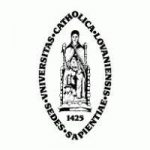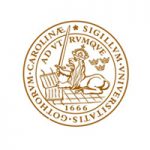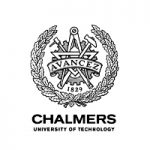项目介绍
The PhD research work will be carried out within the Sustainable Materials Lab in the Department of Chemical Engineering located on the Kulak Kortrijk campus of KU Leuven and headed by Prof. Wim Thielemans. The Sustainable Materials Lab combines fundamental and applied research towards the development of materials from sustainable sources. The SusMat group is very international and interdisciplinary, combining and applying knowledge from a molecular level over processing and characterization of the materials.
The SUSMAT group has fully equipped wet chemical labs, elemental analysis, size exclusion chromatography (SEC), light scattering, small and wide-angle x-ray scattering (S/WAXS), x-ray photo-electron spectroscopy (XPS), dynamic scanning and isothermal titration calorimeter (DSC and ITC), scanning electron microscopy (SEM), benchtop nuclear magnetic resonance (NMR) spectroscopy, various linear and non-linear optical setups, rotational rheometers, and access to centralized high-field NMR spectroscopy and electron microscopy facilities. This project will make use of a custom-built non-linear optics device capabvle of second harmonic scattering and microscopy experiments in a collaboration with the Molecular Imaging and Photonics group headed by Prof. Stijn van Cleuvenbergen. SusMat also has numerous international scientific collaborations.
Project
Cellulose nanocrystals (CNCs) are biobased rodlike nanoparticles that can be trapped at air-water or oil-water interfaces. We can use this process to form particle-stabilised emulsions (Pickering emulsions) or bicontinuous gels (bijels). The advantage of particle stabilized multiphase systems over surfactant-stabilized materials is that they are more stable and can have higher elasticity, e.g. they can become self-supporting. The amount of particle accumulation and the kinetics of it are governed by a multitude of parameters such as the CNC surface chemistry, ionic strength, CNC interparticle interactions, etc.
The rodlike CNCs in aqueous suspension are known to structure into chiral nematic structures driven by entropy. It is not known whether CNCs can form similarly aligned structures at interfaces. If possible, this would open up the formation of surfaces with anisotropic elasticity and create surfaces with different behaviors than when the CNCs are structured randomly. We have recently developed second harmonic generation microscopy, a 2-photon non-linear optical microscopy technique, to investigate the structuring of CNCs in bulk and in suspension. We now want to expand this work towards the study of CNC structuring at air-water and oil-water interfaces using a dedicated setup with a Langmuir-Blodgett through inside the microscope.
This PhD project will first expand our second harmonic microscopy setup (https://www.science.org/doi/10.1126/sciadv.adp2384) with a second microscope fitted with a Langmuir-Blodgett through in the laser beam. After validation of the setup, structuring of CNCs at interfaces will be studied as function of different environmental parameters (interfacial energy, ionic strength, CNC surface groups and energy, types of ion, etc.). Elastic properties of the interfaces and interfacial rheology with futher be determined and the mathematical framework to interpret and analyse results will be developed. These results will be important for developments of new multiphase materials including membranes and self-supporting cell-growth materials.
Profile
We seek an enthusiastic researcher with a Master in Phyics or Chemical Engineering with a strong mathematical background and an interest in non-linear optics and nanoparticle self-assembly at interfaces. Past experience with (non-linear) optics, laser setups, and/or interfacial colloidal assembly studies is a plus. You also graduated either with a distinction or honors, or are author of a peer-reviewed scientific publication, as this is a requirement for the engineering doctoral school.
Offer
We will offer a 4-year fully funded PhD scholarschip towards a PhD in Chemical Engineering to the succesful candidate, with annual progress review.
Publication on bulk self-assembly of CNCs by second harmonic microscopy
Interested?
For more information please contact Prof. dr. ir. Wim Thielemans, tel.: +32 56 24 61 71, mail: wim.thielemans@kuleuven.be.You can apply for this job no later than June 30, 2025 via the online application tool
KU Leuven strives for an inclusive, respectful and socially safe environment. We embrace diversity among individuals and groups as an asset. Open dialogue and differences in perspective are essential for an ambitious research and educational environment. In our commitment to equal opportunity, we recognize the consequences of historical inequalities. We do not accept any form of discrimination based on, but not limited to, gender identity and expression, sexual orientation, age, ethnic or national background, skin colour, religious and philosophical diversity, neurodivergence, employment disability, health, or socioeconomic status. For questions about accessibility or support offered, we are happy to assist you at this email address.
Heb je een vraag over de online sollicitatieprocedure? Raadpleeg onze veelgestelde vragen of stuur een e-mail naar solliciteren@kuleuven.be
联系方式
电话: +32 16 324010相关项目推荐
KD博士实时收录全球顶尖院校的博士项目,总有一个项目等着你!





